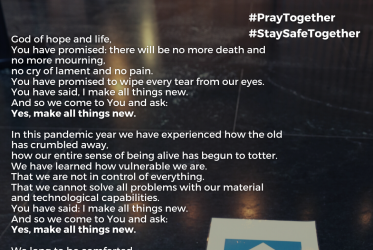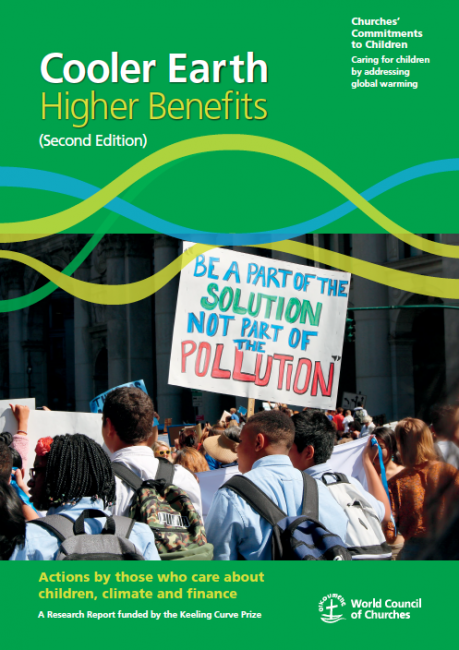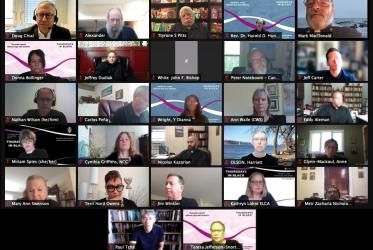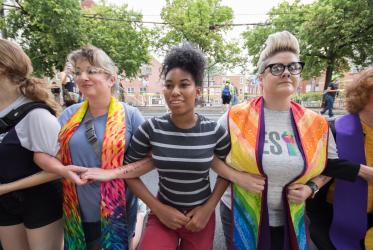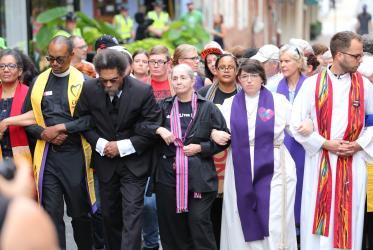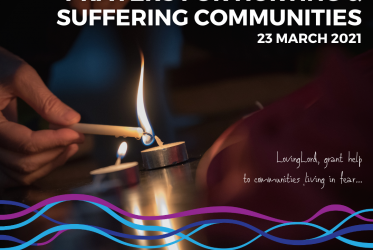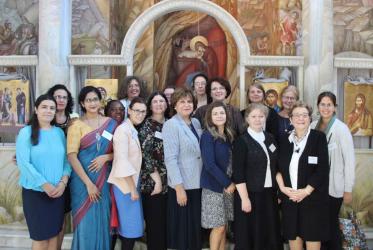Displaying 41 - 60 of 144
A Window into Eternity
14 July 2021
Cooler Earth – Higher Benefits Second Edition
Actions by those who care about children, climate and finance
02 July 2021
Online event-“Anti-racist in Christ? Ecumenical Christian Repentance, Reflection and Action on Racial Discrimination and Xenophobia.”
14 - 17 June 2021
https://us02web.zoom.us/webinar/register/WN_U6s791s5TPqMZAywAFMdYA
Communication for Social Justice in a Digital Age
13 - 15 September 2021
Berlin and worldwide, 9-17:00 each day, CEST Timezone
WCC offers prayer during Japanese peace conference
11 March 2021
Rethinking Ecological Relationships in the Anthropocene era
11 - 13 February 2021
Cooler Earth - Higher Benefits
Actions by those who care about children, climate and finance.
20 November 2020
Freedom of religion rooted in justice
06 March 2020
Plans for 11th WCC Assembly build excitement across the globe
18 February 2020
Churches in southern Africa stand against violence, xenophobia
10 October 2019

